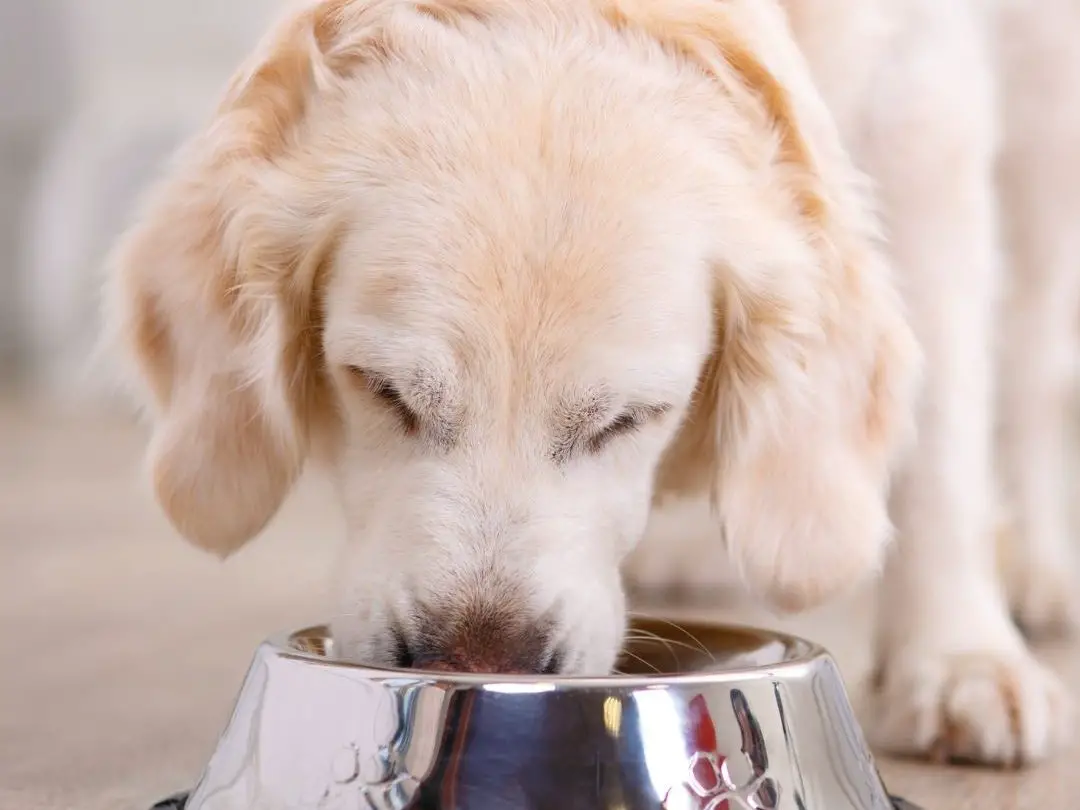I started pondering over ‘do dogs have tonsils?’ and can they also be haunted by the horrors of tonsillitis? Do they also face similar discomfort and pain, if they acquire tonsillitis?
The reason for this question was that I had been haunted by a sore throat and bad breath caused by the inflammation of tonsils, also known as tonsillitis. And if you are unaware, Tonsillitis can cause other problems such as difficulty in swallowing, tender lymph nodes, and swollen tonsil along with other symptoms.
Read on to know more about the tonsil situation of our furry friends.
Do Dogs Have Tonsils?

Dogs do have tonsils and they are present on each side of the throat. A dog’s tonsils are a part of its lymphatic system. It is a vital part of a dog’s immune system.
Tonsils are lymph nodes in the back of the throat and their main job is to filter out germs and bacteria to prevent infection in the body. But some infections and secondary diseases can lead to the inflammation of these tonsils, leading to tonsillitis.
Tonsillitis in dogs is usually a secondary problem that occurs due to the effect of other primary diseases.
Do Dogs Have Adenoids Or Tonsils?
Adenoids and tonsils are two different parts of the oral cavity. Adenoids are usually present in the throat behind the nose and the soft palate. Tonsils are two lumps present in the back of the throat.
Dogs usually have both adenoids and tonsils. Adenoids can be removed if they cause problems like chronic throat infections, cold symptoms, and snoring in your dog.
Tonsils can also be removed in dogs via tonsillectomy. However, this is a very rare case and should be done only if it is necessary and causes acute pain to your dog.
How Many Tonsils Do Dogs Have?
There is one tonsil present on each side of a dog’s throat. So, dogs have two tonsils in total.
These tonsils are a part of your dog’s lymphatic system and they are very vital to their immune system as well.
Can You Remove Dog Tonsils?

It is possible to remove a dog’s tonsils surgically. The surgical procedure of removing one palatine tonsils in dogs is known as tonsillectomy. However, a tonsillectomy is not recommended unless necessary. This is because a dog’s tonsils are a part of its body’s immune system.
Tonsillectomy is often recommended if the dog is suffering from diseases like tonsil cancer, a type of squamous cell carcinoma. This can also cause oral tumors, also known as oral melanoma in dogs.
To read more about the process of tonsillectomy, click here.
Do Dogs Have Tonsils Stones?
Tonsil stones or tonsillolith are caused due to the calcification of bacteria, mucus, and even dead cells in your dog. Hence, your dog can develop tonsil stones.
If your dog is suffering from a bad case of tonsil stones, consult a vet. Medical care includes the surgical extraction of these tonsil stones.
How Do You Know If Your Dog Has Tonsillitis?
Tonsillitis in your dog is not accompanied by obvious symptoms. Your dog might be suffering from tonsillitis as a result of another primary health issue that might showcase other major symptoms.
In case of severe tonsillitis, your dog may show symptoms such as:
- gagging
- coughing
- excessive drooling
- poor appetite
- difficulty swallowing

Your pet might be suffering from inflamed tonsils as a result of another underlying medical issue that might need medical attention. So, if your dog shows any strange behavior, immediately consult a vet.
What Can Cause Tonsillitis In Dogs?
Below are the key causes of tonsillitis in dogs:
1. Disorders of Mouth, Nose, and Throat
Inflammation of the tonsils, known as tonsillitis, occurs in dogs usually with other disorders such as chronic coughing, viral or bacterial infection, chronic vomiting, and other such disorders of the nose, mouth, and upper throat.
2. Brachycephalic dogs
Chronic tonsillitis is more common among brachycephalic dogs like French Bulldog, Boston Terrier, Pug (dogs bred to have flattened faces and short noses). This is due to inflammation of the upper throat.

3. Bacterial Infection
Bacterial infection in your dog is also a frequent cause of tonsillitis. Chemical or physical agents that can irritate the mouth, nose, and tonsils can also be the reason behind tonsillitis in dogs.
4. Other Diseases
Other oral tumors and squamous cell carcinomas can also irritate the dog’s tonsil, causing tonsillitis.
If your dog shows unusual behavior, immediately consult a vet.
How Common Is Tonsillitis In Dogs?
The occurrence of tonsillitis is quite rare in dogs. It rarely is the primary disease in dogs. It happens only as a result of other diseases that affect the nose, mouth, and upper throat.
However, smaller brachycephalic dogs such as pugs, shish tzus, chihuahuas, chow chows, bullmastiff, are more prone to chronic tonsillitis due to inflammation of the upper throat.
What Do You Feed A Dog With Tonsillitis?

Your dog might have difficulty swallowing solid food due to the pain and discomfort caused by tonsillitis and the accompanying primary medical issue. So, it is recommended to feed your puppy soft or liquid food for easy swallowing.
Remember to keep your puppy well hydrated and feed him plenty of fluids, if he is unable to process a solid diet. This will ensure that your furry friend is well hydrated for a strong recovery.
Once your dog has made full recovery, you can go back to feeding him his favorite dog food and treats.
Does Tonsillitis Go Away By Itself?
Tonsillitis doesn’t go away by itself in dogs. Usually, your dog will be prescribed antibiotics for about 2 to 3 weeks to cure tonsillitis as well as the underlying medical issues causing tonsillitis.
Antibiotics will also be prescribed to your dog if the tonsillitis is caused by a bacterial infection.
In case of tumors in the tonsils or repeated inflammation of the tonsils in your dog, a tonsillectomy might be prescribed. But this is a very rare case and will be prescribed only if it is necessary.
Can Tonsillitis Cause Bad Breath In Dogs?
Tonsillitis can definitely cause bad breath in dogs. Bad breath in dogs can be due to various other medical conditions and tonsillitis is also a possibility.
Bad breath in dogs can also be caused by other problems too, such as bacterial build-up in your dog’s teeth, gum diseases, and various other health issues. It can also indicate gut issues in your dog.
If you notice your dog has developed a bad breath, consult the vet to diagnose the underlying medical issue.
Also Read: Can You Give Dentastix To Your Pet Dog?
Can You Get Tonsillitis From A Dog?
The chance of getting tonsillitis from a dog is slim to none. However, a dog’s infected tonsils can harbor various bacterium that can cause diseases like strep throat in humans. This is, however, an unusual case.
Can A Collar Damage A Dog’s Throat?
Unfortunately, yes. A collar can damage a dog’s throat. Traditional dog collars have a high chance of harming a dog’s throat if the dog or the owner pulls at it heavily.
Too much stress on a dog’s throat can cause medical issues that can last long term. A collar can affect a dog’s neck, thyroid glands, and salivary glands.
Dogs collars can also put pressure on the trachea, the esophagus, the spinal cord, vertebral discs, etc. and this can cause long-term medical issues in your dog.
Traditional collars, shock collars, prong collars, etc can cause physical and emotional pain in your dog and it is better if they are avoided to ensure a happy and healthy dog.
It is better to use a chest harness rather than a traditional collar since it reduces a lot of risks that can harm your dog.
Do Dogs Get Sore Throats?

Dogs can get sore throats due to many health conditions.
Sore throat in your dog can be the indication of many different diseases such as tonsillitis, kennel cough, strep throat, rabies, coronavirus infections, respiratory, and sinus infections, canine flu, and chronic disease in the mouth.
Other diseases like canine distemper that can affect tonsils and parvovirus (also called parvo) that affect the lymphoid tissues in the throat can also cause discomfort in your dog’s throat along with other major symptoms.
It is necessary to treat these primary medical conditions if you have an infected dog. Your dog can catch these diseases from various other infected animals.
Your dog might show signs of a sore throat if he is drooling excessively, is coughing, has an inflamed throat or fever, discomfort while swallowing, or difficulty eating. Consult a veterinarian if your dog showcases unusual symptoms.
If your dog has kennel cough you can give it Kennel Cough Dog Allergy Relief
How Can I Soothe My Dogs Throat?
If your dog has a sore throat due to diseases affecting the nose, mouth, upper throat, or respiratory tract, it is best to consult a vet to administer the correct treatment.
However, a little honey can go a long way in soothing your dog’s sore throat. Give your dog food that can be easily swallowed, like watered-down dog food or other fluids. This can help your dog stay strong and healthy.
Also Read: Is Jelly Safe For Dogs?
Conclusion: Do Dogs Have Tonsils?
So, the nest time you wonder, ‘do dogs have tonsils?’, remember that they do.
They have tonsils and can be affected by tonsillitis too. However, tonsillitis in dogs is usually a secondary medical condition occurring as a result of another major primary health issue.




